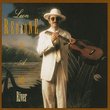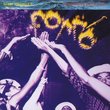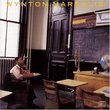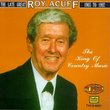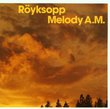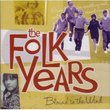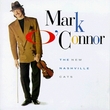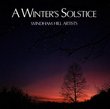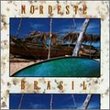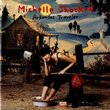| All Artists: Abe Schwartz Title: Klezmer King Members Wishing: 2 Total Copies: 0 Label: Sony Release Date: 4/30/2002 Album Type: Original recording remastered Genres: Folk, International Music, Pop, Rock Style: Jewish & Yiddish Number of Discs: 1 SwapaCD Credits: 1 UPC: 696998632127 |
Search - Abe Schwartz :: Klezmer King
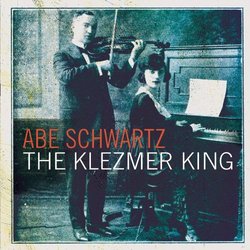 | Abe Schwartz Klezmer King Genres: Folk, International Music, Pop, Rock
It would be impossible to overstate Abe Schwartz's influence on the development of klezmer music in America. He was a fine violinist and pianist, an excellent composer, an arranger who added modern instruments like saxo... more » |
Larger Image |
CD DetailsSynopsis
Amazon.com It would be impossible to overstate Abe Schwartz's influence on the development of klezmer music in America. He was a fine violinist and pianist, an excellent composer, an arranger who added modern instruments like saxophones and banjos to the Old World sound, and a bandleader with a nose for talent who helped launch the careers of Dave Tarras and Naftule Branwein, among others. The Klezmer King collects 25 tracks from the 75 or so sides that Schwartz recorded for Columbia between 1917 and 1935. Schwartz was remarkably versatile, and the selections include traditional dance tunes like "Roumanian Doina," Yiddish pop tunes such as "Die Greene Cousine," which was later a hit for Benny Goodman as "My Little Cousin," and sly social commentary like "Der Automobile." Also here are three versions of the old melody "Russian Sher," which were recorded in 1917, 1927, and 1935. Listening to them, you can trace Schwartz's style as it evolves from its European roots to a more American version of klezmer. The sound quality of these rare recordings is outstanding; there are almost no clicks, pops, or hiss to mar the music. The Klezmer King is an essential recording from one of the pioneers of New World klezmer. --Michael Simmons Similarly Requested CDs
|
CD ReviewsTime warp Alyssa A. Lappen | Earth | 08/10/2002 (5 out of 5 stars) "Listening to the 25 old but timeless cuts on this set of remastered Yiddish greats provides many layers of enjoyment. In hearing these long-forgotten tunes, one enjoys clarinet and violin strains influenced by ancient melodies and traditions. And some will recognize varied renditions of old favorites. The 6th cut, for example, Dovid'l Bazetzt die Kalleh, is engrained into my memory from Jewish Music, a Benedict Silberman recording, circa 1955, of Yiddish orchestrations.The music is all decidedly Eastern European. The Roumanian Doina, for example, played by Abe Schwartz (violin) and his daughter, strongly resembles the brilliant Rom music generated by the same region. No wonder. Born in Bucharest, Romania, Abe Schwartz (1881-1963) emigrated to the U.S. with his parents in 1899 and became the most influential composer, fiddler and bandleader to shape and define modern U.S. klezmer groups. He arrived in the musical establishment via an acquaintance from small jobs with David Nodiff, a part-time composer and so-called A&R (for artist and repertoire) man for Columbia Records, who helped bring klezmer and other ethnic musicians to record companies. Nodiff hired Schwartz in 1917 to find new Jewish talent and head up instrumental recording sessions. This recording provides some of the time and style progression of Yiddish American music from 1917, when Schwartz recorded Russian Scissors for Columbia with the Oriental Orchestra. In 1927, he recorded the same tune again as Russishe Shehr, in a brassier rendition played by his own orchestra. Still a later 1935 version can be heard in Russian Sher National Dance, the 22nd cut, recorded with the Orkestr Novinka. (And that is the most recent recording here.) The musical and stylistic progressions from 1917 and 1918 through 1935 are admirably explained in an accompanying 8-page pamphlet. This is not the jazzy stuff many will remember from the 1940s and 1950s. It came before the Barry Sisters, before Naftule Brandwein and Dave Tarras. Abe Schwartz was their mentor.What you get here is a time warp, filled with early 20th century Jewish musical genius. Alyssa A. Lappen" Joy, Joy, Happy, Happy Bruce Kendall | Southern Pines, NC | 02/05/2004 (4 out of 5 stars) "I came to Klezmer music via Izaak Perlmann's "In the Fiddler's House," which is one of my all time favorite CDs. I'm just learning about the genre, via other Amazon reviewers, so have just recently arrived at this and other "Klezmer roots" CDs (Dave Tarras, as another reviewer mentions, is also excellent). It's just exceedingly harmonious, well orchestrated, tightly knit music, transported from the old world to the new. The tradition lives on, and an increasing number of us goyim are coming to appreciate it. Sound quality, these can't compete with modern recordings like those of the Klezmer Conservatory Band, or the Klezmatics, but it will definitely give you an idea of where they learned from. Mazaltov!!BK" Close your eyes and you're at a Jewish wedding Israel Beat | Jerusalem, Israel | 03/30/2003 (4 out of 5 stars) "If you've ever heard new groups like the Yiddish Cup Klezmer Band and The Klezmatics and marveled at how they got all those great old tunes, look no further. Abe Schwartz, the Klezmer King is now available on CD. Before this, 78 RPM records these were remastered from was the only place you could hear him. The Klezmer King album is old, both in sound and style. But keep in mind that clarinet klezmer is more of an American thing. This music is a generation or two removed from the original originals. Songs called Russian Sher and Roumanian Doina indicate that, just like today, wedding musicians from the old country were jamming the hits of the day as well as the "Jewish" stuff. But it was guys like Schwartz, Dave Tarras and the Musiker Brothers, whom the new wave learned from. But unlike the younger versions, these melodies don't seem to have jazz-like improvisation. They are straight ahead rollickers, heavy on catchy rhythm and melody. There are a total of twenty-five tracks on the album and most are short and fast. The instruments employed are the violin, played by Schwartz, the clarinet and horns. The beat is so danceable that you forget there's no percussion. That's traditional, because back in the old country, if the klezmorim had any percussion at all it was just a bass drum. For you Yiddish speakers, The Klezmer King is not all instrumental. There are tracks that start with lively shouts as well as straight singing pieces like Mameniu Liubeniu or the satirical Hurra Far Unzerheld Levine. Then there's Die Bolbriker Chasseneh, which has Schwartz introducing a bride and groom in between slow music. He raises his voice, half speaking and half singing in rapid-fire Yiddish. Then he gasps out that the couple is now officially married and the band breaks into fast, bouncy jamming. Close your eyes and you can imagine you're one of the guests. That goes for most of the tunes here. If you didn't know the difference between a bulgar and freilach and nigun before, you better start learning. Abe Schwartz taught long of young folks about what it takes to be a king of klezmer. Companion CDs of Dave Tarras and the Musiker Brothers are available from Legacy Recordings."
|

 Track Listings (25) - Disc #1
Track Listings (25) - Disc #1